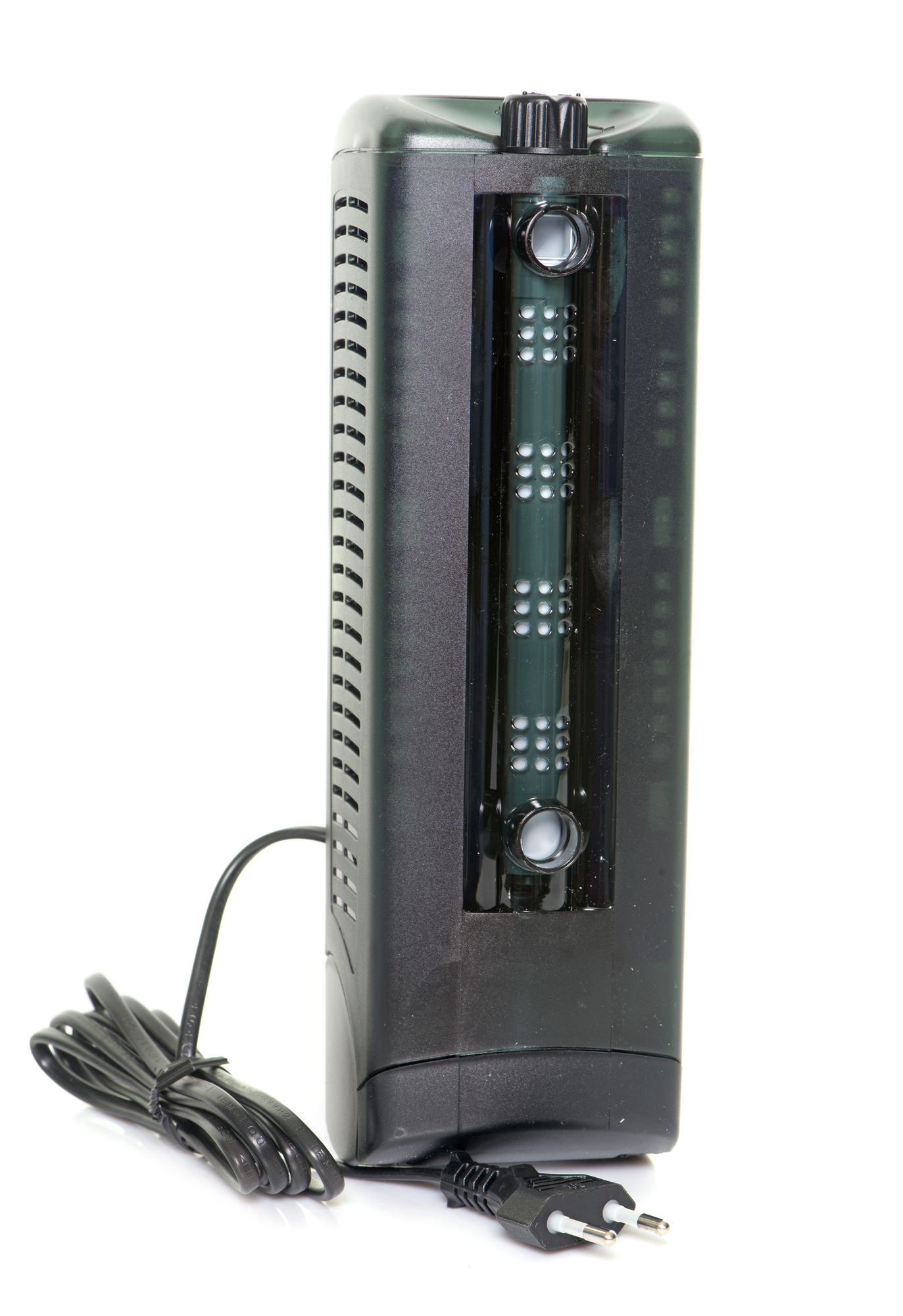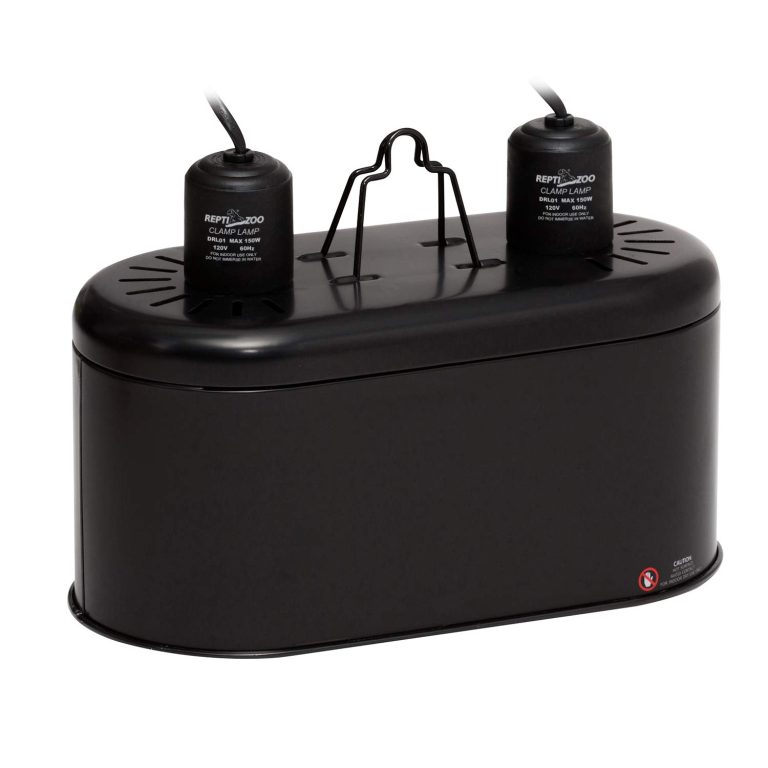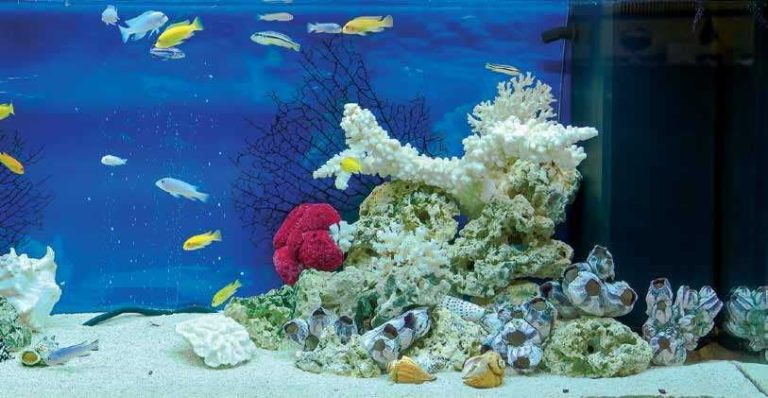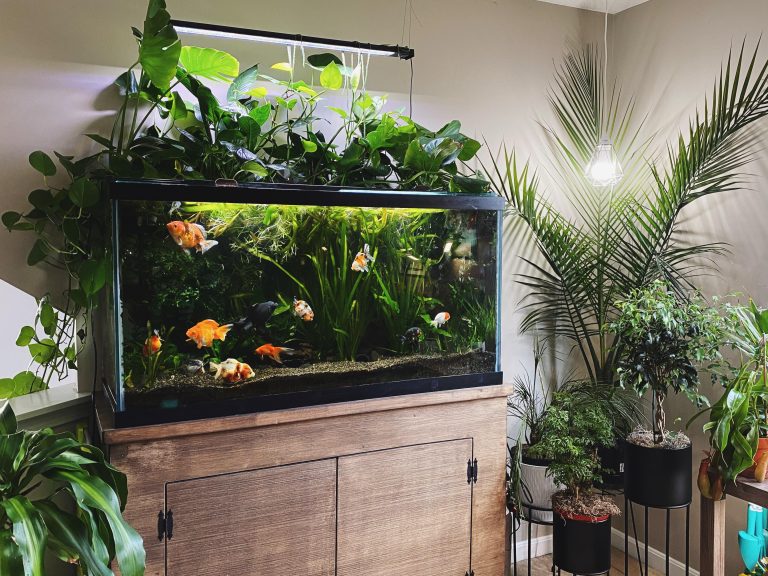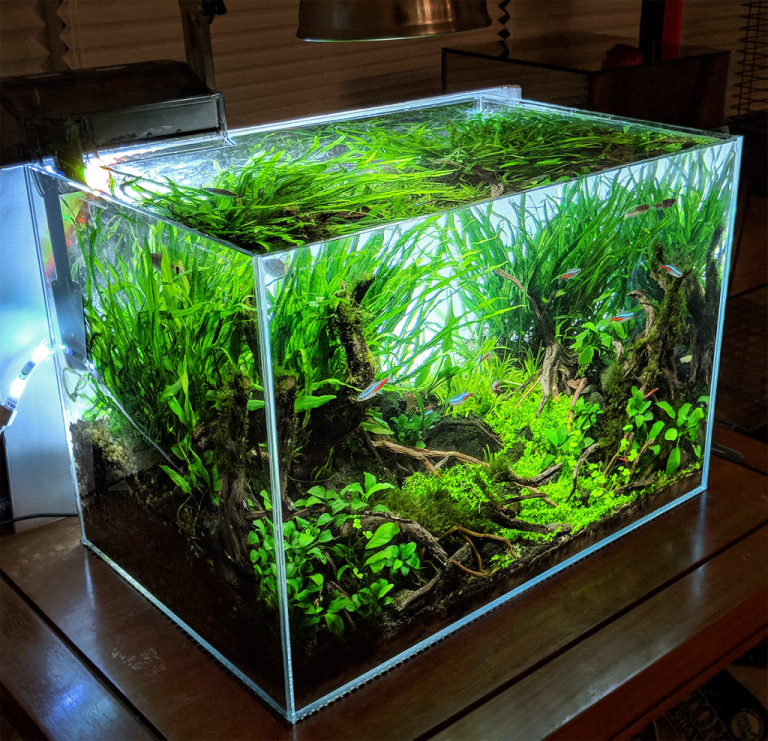Sponge Filter Vs Power Filter: Which Is Best for Your Aquarium?
Sponge filters are suitable for small aquariums, while power filters are ideal for larger aquariums and require less maintenance. Aquarium filters are crucial for maintaining a healthy environment for fish and other aquatic creatures.
They take on the responsibility of capturing and removing debris, waste, and harmful chemicals from the water. Two types of filters commonly used in aquariums are sponge filters and power filters. However, both have different features and functions that make them suitable for specific aquarium sizes, filtration requirements, and maintenance needs.
Therefore, selecting the right filter is crucial for ensuring a healthy and thriving aquarium. This article will delve into the differences between sponge filters and power filters and help aquarium enthusiasts choose which one is the best fit for their tank.
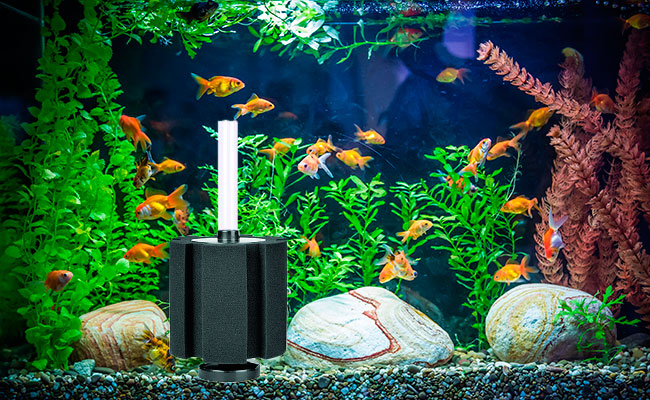
Credit: fishlab.com
Understanding Your Aquarium’S Filtration System
Aquariums are a beautiful and calming addition to any living space. However, maintaining a healthy aquatic environment for your adorable fish friends can be challenging without good quality filtration systems. This article aims to compare two popular filtration options: sponge filter vs power filter.
Importance Of Filtration In Aquariums
Without appropriate filtration, toxins produced by waste and uneaten food can accumulate in the tank and harm your fish. The benefits of filtration include:
- Regulates the oxygen level in the water by eliminating carbon dioxide and reintroducing oxygen
- Removes harmful waste products to maintain the water’s chemical balance
- Provides a healthy living space for fish and other aquatic creatures.
Types Of Filtration Systems Available
Aquariums can utilize three main types of filtration systems: mechanical, biological, or chemical. Here’s a brief overview:
- Mechanical filtration – removes large waste particles and debris. It involves physically straining the water through a filter media that traps particles as the water flows through and out of the tank.
- Biological filtration – uses bacteria to eliminate waste and toxins by breaking them down into less harmful substances. This type of filtration involves growing bacterial colonies on a filter media to process the water.
- Chemical filtration – uses activated carbon or resins to remove impurities, odors, and tints from the water. It involves incorporating chemical removing substances within the filter media.
Sponge Filter Mechanics
Sponge filters are air-driven systems that are the simplest and cheapest form of filtration. It’s made of a single sponge that sits on the air lift tube. Here’s a summary of how it works:
- The air from the lift tube creates a suction-like effect in the sponge filter’s sponge element.
- As water flows from the tank through the sponge element-the sponge traps waste and debris while allowing beneficial bacteria to grow.
- The filtered water then travels up the lift tube, releasing bubbles into the tank and increasing oxygen levels for healthy aquatic life.
Power Filter Mechanics
Power filters, also known as hang on back filters, are electrical systems that force water through the filter media. Here’s how they work:
- The motor forces water through filter media that trap debris through a unique technology.
- Mechanical filtration screens out waste while biological filtration uses bacteria to break down toxins.
- The clean water of the tank is returned through an outflow assembly, aerating the tank’s water.
Both sponge filters and power filters are effective filtration options; choosing the right one depends on your needs, the type of fish you keep, and the size of your aquarium. When in doubt, consult with a professional and your local pet store employees.
Remember, a clean and healthy environment will improve the longevity and well-being of your aquatic pets.
Advantages And Disadvantages Of Sponge Filters
Sponge Filter Vs Power Filter: Advantages And Disadvantages Of Sponge Filters
When it comes to aquarium filtration, there are two basic types – sponge filters and power filters. Sponge filters are a popular choice among aquarists due to their affordability and ease of use. However, they do have their disadvantages too.
Pros:
- Cost-effective: Sponge filters are a cost-effective option compared to power filters. They don’t require electricity, making them less expensive to operate.
- Easy to use and maintain: Sponge filters are easy to set up and maintain. They don’t require much maintenance, and cleaning them is a breeze. Just rinse them under tap water and they’re good to go!
- Gentle filtration for delicate fish and fry: Sponge filters provide gentler water flow, making them suitable for delicate fish and fry. They don’t have a strong current that can harm small fish.
- Quiet operation: Sponge filters are almost silent when in operation. There is no motor or impeller to create noise and disturb your aquarium’s peace.
Cons:
- Limited filtration capacity: Sponge filters have a limited capacity for filtration. They are suitable for small aquariums or tanks with a low bioload.
- Not suitable for large aquariums or heavy bioloads: If you have a large aquarium or a heavy bioload, sponge filters may not be able to keep up with the required filtration needs.
- Can clog quickly and require more frequent cleaning: Sponge filters can clog up quickly, which means they require more frequent cleaning compared to power filters.
Sponge filters are a good option for small aquariums or for those with a low bioload. They are cost-effective, easy to use and maintain, gentle on delicate fish and fry, and operate quietly. However, they do have their limitations, which need to be considered before making a purchase.
Advantages And Disadvantages Of Power Filters
Pros: Efficient Filtration For Larger Aquariums And Heavy Bioloads, Customizable With Different Media Options, Longer Lifespan, Automatic Cleaning
Maintaining a clean and healthy environment for aquarium inhabitants is of utmost importance to keep them happy and thriving. Power filters offer a number of advantages over other types of aquarium filtration, particularly when dealing with larger tanks or heavy bioloads.
Here are some of the key benefits of using a power filter:
- Efficient filtration for larger aquariums: Power filters have the ability to filter water more efficiently, making them ideal for larger aquarium setups, where water quality can quickly deteriorate if not maintained properly.
- Customizable with different media options: Power filters are highly customizable, allowing you to choose from a range of filter media options to suit your specific aquarium needs.
- Longer lifespan: Power filters typically have a longer lifespan than other types of aquarium filters, meaning you won’t need to replace them as frequently.
- Automatic cleaning: Many power filters have an automatic cleaning feature, which helps to reduce maintenance and ensures your filter is always running at maximum efficiency.
Cons: Relatively Expensive, May Create Strong Currents That Disrupt Delicate Fish, Louder Operation Compared To Sponge Filters
While power filters offer numerous advantages, they are not without their drawbacks. Here are some key considerations before deciding whether a power filter is the right choice for your aquarium:
- Relatively expensive: Power filters are generally more expensive than other types of aquarium filters, and the cost can quickly add up if you have a larger aquarium setup.
- Currents may disrupt delicate fish: Power filters can create strong currents in your aquarium, which can be disruptive to delicate fish species.
- Louder operation compared to sponge filters: Power filters can be noisier than other types of filters, particularly sponge filters, which can be problematic if you prefer a quieter aquarium setup.
Compatibility With Different Types Of Aquariums And Fish
Aquarium filters are necessary for maintaining a healthy aquatic environment. There are two main types- sponge filters and power filters. While both serve the same purpose, they have their distinct features that make them differ in terms of their compatibility with different types of aquariums and fish.
Discussion Of How Sponge Filters And Power Filters Perform In Different Types Of Aquariums
Planted Tanks
- Sponge filters are perfect for planted tanks, as they don’t create a strong current that can disturb plant life.
- Power filters may damage plant life in planted tanks because of their high water flow rates, but they are necessary if the tank has a large volume of water.
Saltwater Tanks
- Saltwater environments require efficient filtration for keeping water clear, clean and safe for fish.
- Power filters are recommended for saltwater tanks, as they can handle salt buildup and impurities that can accumulate quickly in these types of setups.
- Sponge filters can create insufficient water flow rate and may not be sufficient in removing waste and debris from the water.
Community Tanks
- Sponge filters are ideal for community tanks as they are gentle and do not create a strong current that can cause discomfort to fish.
- Power filters are also suitable for community tanks, but the type of fish species should be considered. Some fish may not enjoy strong water currents.
Explanation Of Which Types Of Fish Benefit From Sponge Filters Vs Power Filters, And Which Should Avoid One Or The Other
Sponge Filters
- Ideal for small and fragile fish that require gentle water flow rate
- Suitable for breeding tanks, fry tanks, and hospital tanks, as they do not create strong currents that may harm the health of the fish
- Recommended for fish that are not strong swimmers as well as slow-moving or sedentary fish that do not generate much waste.
Power Filters
- Suitable for fish that require high oxygen levels or strong water currents, like cichlids, bettas, and other active fish species.
- Great for large or heavily populated tanks, where efficient filtration is necessary
- Should be avoided for small or shy fish species that require low water flow rates.
Overall, both sponge and power filters have their specific benefits, depending on various factors like the size of the tank, type of fish, and environment. It is important to choose the right type of filter for your fish and to maintain it regularly to ensure a healthy and thriving aquatic environment.
Maintaining And Troubleshooting Your Filter
Sponge Filter Vs Power Filter: Maintaining And Troubleshooting Your Filter
If you want to keep your aquarium healthy and clean, you can’t go without a filter. There are two types of filters: sponge filters and power filters. Sponge filters are ideal for small aquariums with small and delicate fish. On the other hand, power filters are more suitable for larger aquariums with a variety of fish.
Let’s dive deeper into maintaining and troubleshooting your filter, so you can keep your aquarium clean and healthy.
General Maintenance Guidelines For Both Sponge Filters And Power Filters, Such As Cleaning Schedules And Media Replacement:
It’s essential to maintain your filter regularly to ensure its optimum performance. Here are some general maintenance guidelines to follow for both sponge and power filters:
- Cleaning schedules: Clean your filter at least once a month to keep it running smoothly. However, it’s better to clean it every two weeks to perform at its best.
- Media replacement: Replace the media in your filter at least once every three months, depending on the filter’s size and the number of fish living in the aquarium.
Common Issues That Can Arise With Filters, And How To Diagnose And Fix Them:
Filters can have problems due to various reasons, but identifying them can be overwhelming if you’re not experienced. Here are some common issues and troubleshooting tips for them:
- Power outage: It can happen for different reasons, such as a blown fuse, tripped circuit breaker, or storm. To fix this issue, replace the blown fuse or reset the circuit breaker.
- Clogged intake tube: A clogged intake tube can reduce the flow rate, leading to drained filter media and reducing the filter’s efficiency. To handle this issue, clean the intake tube and replace the filter media if necessary.
- Noisy operation: Noise can be due to several reasons such as air trapped in the filter, worn-out impeller, or debris stuck in the impeller chamber. To deal with this issue, remove air from the filter or replace the impeller if worn out or remove debris from the impeller chamber if it’s clogged.
Tips For Troubleshooting Specific Issues, Such As Noisy Operation Or Inadequate Filtration:
If your filter doesn’t work as expected, you need to troubleshoot it to find out what went wrong. Here some tips for troubleshooting specific issues:
- Noisy operation: When your filter’s noise level goes beyond normal, check the impeller’s condition, clean the impeller chamber, and ensure there is no air trapped in the filter.
- Inadequate filtration: If the filter doesn’t seem to provide enough filtration, check the flow rate, and make sure the intake tube isn’t clogged.
So there you have it- a brief guide on sponge filters and power filters’ maintenance and troubleshooting. With the right techniques, your filter can keep your fishes healthy and your aquarium clean.
Frequently Asked Questions Of Sponge Filter Vs Power Filter
What Is A Sponge Filter?
A sponge filter employs a sponge to filter out small particles and debris from aquarium water.
What Is A Power Filter?
A power filter is an aquarium filtration system that uses mechanical, biological and chemical filtration.
Which Is Better, A Sponge Filter Or A Power Filter?
The choice between a sponge filter and a power filter depends on your specific aquarium needs and preferences.
How Do I Choose The Right Filter For My Aquarium?
Consider the size of your aquarium, the types of fish and plants you have, and your preferred filter type when choosing a filter for your aquarium.
Conclusion
After comparing sponge filters and power filters, it is clear that each has its benefits and drawbacks, but ultimately, the best choice depends on the individual needs of your aquarium. Power filters offer better filtration and a wider range of options, while sponge filters are more affordable and can be easier to maintain.
Consider factors such as aquarium size, the type of fish and plants you have, and your budget to make the best decision for your aquatic environment. Remember that both sponge filters and power filters play critical roles in maintaining good water quality and keeping your aquatic pets healthy and happy.
Choosing the right filter for your aquarium can be a daunting task, but with the right information and considerations it can also be a satisfying one. So, take the time to research and evaluate your options, and happy filtering!
